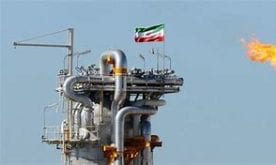Al-Monitor – After failing to receive diplomatic support for exiting the nuclear deal, or the Joint Comprehensive Plan of Action (JCPOA), the United States has used the most recent United Nations Security Council (UNSC) meeting to ask other countries to apply pressure on Iran regarding its missiles programs. The Security Council meets every six months to discuss Iranian compliance with the 2015 JCPOA, which UN Resolution 2231 supported.
The resolution “calls upon” Iran to not test missiles specifically “designed to carry nuclear weapons.” It does not ban them, a distinction US officials are keen to avoid in their accusations against Iran. In discussing the resolution, US Secretary of State Mike Pompeo said, “Iran has exploited the goodwill of nations and defied multiple Security Council resolutions in its quest for a robust ballistic missile force.” He added, “The United States will never stand for this.”
Iran’s Foreign Minister Mohammad Javad Zarif responded to Pompeo’s claims at the UNSC meeting. He tweeted, “In latest mockery of UNSC, Sec. Pompeo — bragged about violating 2231; outline plans for more violations — confirmed that US and allies rely on defunct Resolution 1929 provision on missiles — turned an isolated US into first permanent security council member to punish other countries for complying with resolution.” Resolution 1929 was a 2010 resolution calling on Iran to halt launches of nuclear-capable missiles rather than “missiles designed to be capable of carrying nuclear weapons.” Iran argues that it does not have any missiles designed to be capable of carrying atomic weapons, particularly as it has no nuclear weapons.
The United States said it would apply sanctions against those who maintained business ties with Iran. However, European countries have decided to remain in the nuclear deal and have even sought to create a special purpose vehicle to maintain economic relations with Iran and bypass US sanctions while the country continues to abide by the nuclear deal.
Still, the US strategy to pressure Iran on missiles will have more support from European countries. “We are very concerned about the findings of [UN Secretary-General Antonio Guterres] regarding Iran’s destabilizing regional activities and in particular ballistic missile-related activities,” a European Union statement read. The EU however, would like to address Iran’s missile programs outside of the framework of the nuclear deal.
The latest US pressure on Iran and its missile activities began Dec. 1 when the United States accused Iran of testing a missile “capable of carrying multiple warheads.” On Dec. 11, the commander of the Islamic Revolutionary Guard Corps aerospace force confirmed that Iran had recently tested missiles, though he did not name the type of missiles. “The reactions of the Americans show that these tests were very important for them,” said Brig. Gen. Amir Ali Hajizadeh. Discussing the approximately 40 to 50 missile tests Iran conducts a year, Hajizadeh said the US response shows “the pressure is on them.”
Despite recent US pressure and the reimposition of sanctions, Iran is likely to neither budge nor re-enter negotiations with this current US administration. During a Dec. 11 speech to families of those who were killed in the Iran-Iraq War, in Syria and Iraq, and in border skirmishes, Supreme Leader Ayatollah Ali Khamenei warned against US actions in the upcoming year. “Even though the enemy’s plans are revealed, you must stay alert, because America is an evil and cunning enemy and they have the intention of deceiving you,” he said. Khamenei warned that while the United States is creating controversies this year, it’s also possible “they have plans” for 2019.
 Shabtabnews In this dark night, I have lost my way – Arise from a corner, oh you the star of guidance.
Shabtabnews In this dark night, I have lost my way – Arise from a corner, oh you the star of guidance.


